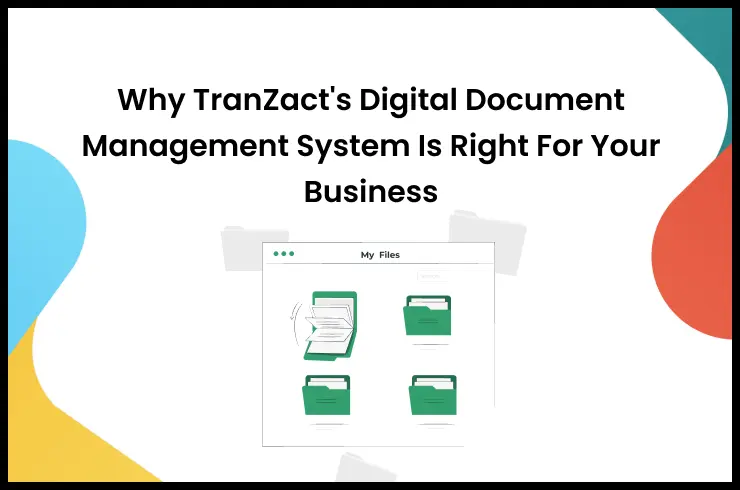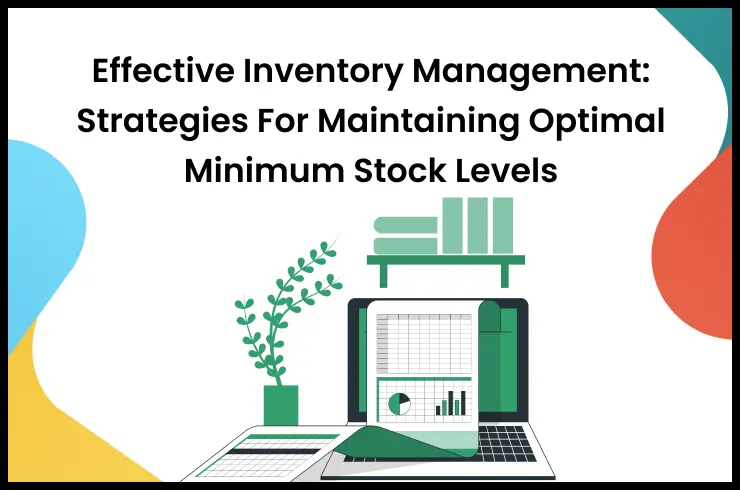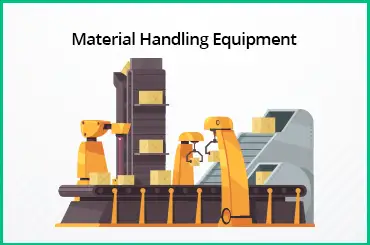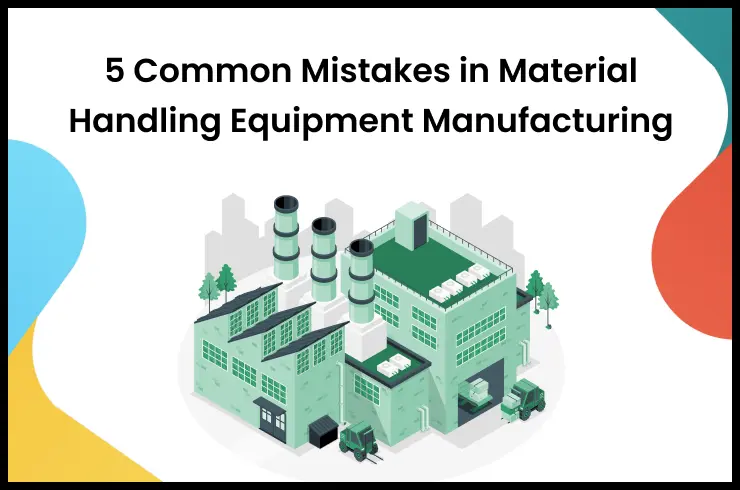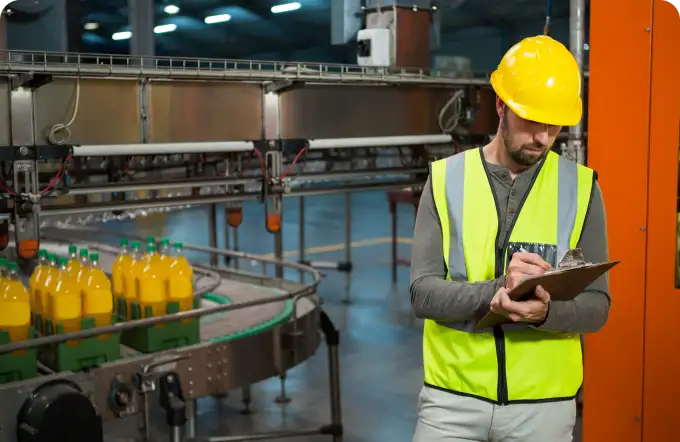Indian SME manufacturing companies face many challenges due to a lack of digitization, including inefficiencies in inventory management, production scheduling, and supply chain management. They need help with workflow optimization, quality control monitoring, and proper accounting processes. This leads to unmet market demand and poor CRM (Customer Relationship Management).
Digitization manufacturing helps businesses improve their workflow, monitor quality control, and execute proper accounting processes. This blog post will help you understand how digitization can help your manufacturing business by simplifying sales and purchase activities, managing documents, and improving overall operational efficiency.
What Is Digitization In Manufacturing?
Digitalization in manufacturing industry is the method of converting traditional manufacturing processes into automated formats. Digitization manufacturing involves the use of advanced tools and cloud-based manufacturing software to simplify your production process. It includes modules that replace manual data entry and paperwork to reduce human errors.
Digital transformation has many benefits for any manufacturing business, like increasing productivity, improving the workflow, and increasing sustainable production. You can also monitor manufacturing operations in real time and make data-based decisions to solve any issues in the ongoing process.
Key Benefits Of Digitization In Manufacturing?
Here are the key benefits of implementing digital techniques and solutions in your manufacturing business.
1. Provide Real-Time Data And Reporting
Digitalization of manufacturing businesses can help you gather information on ongoing production operations in real-time. Implementing manufacturing ERP software can offer you a centralized dashboard where you can easily monitor the progress of workflow and gain valuable insights. You can use this data to plan strategic production and automate your scheduling process.
2. Improves Operational Workflow
You can automate your inventory tracking process, production operations, and supply chain management. Digitization manufacturing can help you monitor the work performance of your employees and improve by assigning the relevant tasks.
3. Increases Productivity
Automating the manufacturing business can allow you to effectively collaborate with your supplier, stakeholders, production, and engineering team. Implementing cloud-based inventory management software can benefit you by providing a centralized dashboard that allows you to bring your suppliers and employees to one screen.
You can discuss problems and new ideas to solve them and assign tasks by accessing one dashboard to get your orders completed on time.
4. Control Inventory Flow
The benefits of digital transformation in manufacturing also include inventory management. With the right technology, you can avoid overstock or stock shortage. You can even create and send multi-level BOM (Bill Of Materials) on time for effective inventory control.
5. Reduces Operating Cost
Effective reporting and analytics of the ongoing production process help manufacturers identify potential problems. Digitization manufacturing can help you automate demand forecasting and make decisions to meet the production life cycle needs. It allows you to save time and money and reduces the operating cost.
6. Expands Business Opportunities
The manufacturing SMEs that have advanced technologies for digitalization in production are competitive in the industry. They stay updated with the latest manufacturing trends and make effective production plans for their business structure. Digital manufacturing allows you to expand your business by meeting deadlines and improving customer satisfaction.
Read 25 Manufacturing Business Ideas in India.
7. Provide Transparency
The centralized dashboard helps you monitor the complete manufacturing operation workflow in real time. It helps to automate inventory tracking, production management, supply chain management, and many more. You can also keep an eye on accounting and documentation processes like tracking e-way bills and e-invoices and get fast and easy approval.
8. Monitor Multiple Warehouse
You can easily track multiple locations using a single dashboard and monitor the performance of your inventory. It will help you remove the non-performing goods and make space for new products or raw materials.
9. Improve CRM (Customer Relationship Management)
Digitalization in manufacturing industry can help SMEs to meet the deadline of the purchase order. Manufacturers can complete bulk production on time while maintaining the product’s quality. It allows for monitoring the supply chain and work process for quality assurance and delivering the product on time to improve CRM.
Read Ultimate Industrial IoT (IIoT) Implementation Guide For Businesses.
How Do You Achieve Digitalization Of The Manufacturing Process?
You need to consider multiple factors while making your implementation strategies for digitization manufacturing and choose a reputable vendor to execute them.
1. Evaluate your current level of digitalization and define your requirements.
2. Outline the steps to implement the technologies.
3. Make a list of manufacturing software that supports scalability, automation, IoT (Internet of Things) devices, and cloud computing for effective data storage and production management.
4. Choose a software that is suitable for your digitization manufacturing needs.
5. Integrate it with your existing system to execute the implementation process.
6. Transfer all the data from your previous tool to the new system.
7. Perform the testing process to confirm if everything is working fine.
8. Provide training to your employees on new digital tools and technologies for smooth adaptation.
9. Track performance from time to time and upgrade your digital tools if needed to improve it further.
Examples Of Digitalization In Manufacturing Industry
Cloud inventory management software, sales, and purchase management tools, barcode scanning systems, and other smart tools are a few digitalization in manufacturing examples. Below are some practical examples of digitalization in manufacturing, from automobile and hardware manufacturing industries, that have helped businesses save money and improve productivity.
Mesco Spring
Mesco Spring manufactures springs of all sizes for different industries and has been established as a reputable company in the market. They faced challenges in the accounting process as the company was depended on a legacy ERP system. Then, they adopted TranZact’s digitization manufacturing solution, which helped them improve their productivity and increase revenue.
With TranZact’s effective modules, they were able to automate their inventory accounting process. It not only simplified the recordkeeping but also automated the alerts for the reorder levels. This helped them avoid understockign or overstocking. Its 5 manufacturing module helped them to keep track of sales, purchase, inventory, production and planning.
Read Success Stories - Real TranZact Users.
Challenges To The Digitalization Of Manufacturing
Manufacturing SMEs face several challenges in implementing new tools and software during the digital transformation of their businesses. Below are some common challenges.
- Lack of technical knowledge making it unable to choose the right software, tools, and vendor for the digitalization of manufacturing.
- Preferring the traditional methods and tools for manufacturing operations and having no digital vision.
- Dealing with data overload during digitization manufacturing, where SMEs need to source, transfer, and process large amounts of information into new ERP systems.
- Struggling to simplify the supply chain management due to lack of the right manufacturing solution that supports changing market trends and customer demand.
Sustainable Manufacturing Through Manufacturing Digitalisation
Digitalizing your manufacturing business doesn’t only mean increasing productivity and increasing the workflow. Digitalization of manufacturing process also includes sustainable resources that help to reduce carbon footprints.
For example, you can consider cloud-based inventory management software for cost-effective infrastructure. It allows you to access customization modules to automate production management with real-time monitoring of workflow. Real-time monitoring and reporting also allow the prevention of overstocking of inventory and reduce wastage. You can also make effective production planning to maintain the environmental balance by utilizing the available resources.
The scrap management system helps you monitor the wastage of materials during production, which reduces the environmental impact. Its centralized dashboard provides accessibility to the workflow in real-time using a single device, where you can monitor the usage of materials and waste generation. This initiative again minimizes carbon footprints and allows you to contribute to sustainable production.
Future Trends Of Digitalization In The Manufacturing Industry
Many small and medium-sized manufacturers in India have already adopted smart technologies like IoT (Internet of Things), cloud ERP software, RFID scanners, 3D printing, and many more to automate data analytics and recordkeeping. Some of the important future trends that will shape this digital transformation and are being used currently are:
- AI (Artificial Intelligence)
- ML (Machine Learning)
- IoT (Internet of Things)
- AR (Augmented Reality)
- VR (Virtual Reality)
- Digital Twin Technology
- Additive Manufacturing
- Blockchain Technology
- Cloud-Based ERP Solution
The digital transformation in manufacturing is soon going to launch Industry 5.0, which will simplify production operations. The main aim is to convert physical and repeated tasks into digital formats to make sure sustainable production. Industry 5.0 allows manufacturing SMEs to track carbon emissions and accurately predict machine failures and market demand.
Digitalization may also help you in the future to replace human resources with robots on assembly lines to utilize them in other productive work and improve quality control. It may help you to manage huge amounts of data, accept bulk customisation requests, maintain data security, and boost customer experience. The companies that are ready for digitalization in manufacturing industry are likely to gain a competitive advantage by simplifying the supply chain, production operation, and resource utilization.
Implement TranZact To Digitize Your Manufacturing With Smart Production
Indian SMEs face problems in digitalizing their manufacturing due to a lack of automation solutions. TranZact can help you achieve digitization manufacturing with inventory management, production management, MRP (Material Resouce Planning), and sales and purchase management.
These solutions help you simplify multiple warehouse management, automate the procurement of materials, and monitor inventory levels. You can electronically generate and send quotations, prepare purchase requisitions and purchase orders with easy approval, assign tasks for productions, and improve the supply chain process.
Transform your business with TranZact’s digital solutions now to improve productivity and manufacturing operations.
FAQs
1. What is digitization in manufacturing, and why is it important?
Digitization in manufacturing is the process of converting manual and repeated tasks into digital format. It is important to promote sustainable production and improve productivity in the manufacturing industry.
2. How does digitalization in the manufacturing industry improve production efficiency?
Digitalization in the manufacturing industry improves production efficiency in the following ways.:
- Automate production scheduling
- Simplify supply chain management
- Monitor inventory management
- Provide real-time reporting and analytics
- Control inventory flow
- Reduce operation cost
3. How can digitalization of the manufacturing process reduce costs?
Digitalization of the manufacturing process can reduce costs with the integration of smart technologies like IoT, digital twins, AR and VR technology, and additive technology to predict market trends and accurately design the product.
4. What challenges might manufacturers face when implementing digitalization, and how can they overcome them?
Manufactures might face numerous challenges when implementing digitalization, as follows:
- Using outdated technology infrastructure
- Lacking behind in technical knowledge
- Preferring the traditional methods and tools
- Dealing with data overload
They can overcome these challenges by implementing digital tools and cloud-based inventory management software to automate the complete workflow.
5. What are some examples of digitalization in manufacturing?
Some examples of digitalization in manufacturing are as follows:
- IoT Device
- Cloud Computing Software
- Digital Twins
- Machine learning
- Additive Manufacturing
6. What steps should a manufacturing business take to begin the digitalization process?
Manufacturing businesses should take the following steps to begin the digitalization process:
- Define the objective of digitalization
- Develop a digital transformation strategy
- Choose the right tools and technology
- Execute the implementation process
- Transfer the existing data
- Organise training session
7. What are the future trends of digitalization in the manufacturing industry?
The future trends of digitalization in the manufacturing industry are:
- Artificial Intelligence
- IoT devices
- AR and VR technology
- Digital twin technology
- Additive manufacturing
- Blockchain
8. What is the aim of digital manufacturing?
The main aim of digital manufacturing is to reduce operational costs, encourage safe production, and increase productivity.






